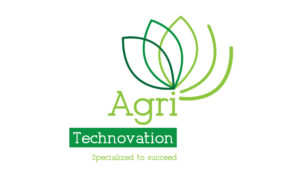The RELEASE LPH™ range of products
by Rochelle Thuynsma, Senior Product Manager
Complex biological biostimulants for crop production
Understanding the importance of plant nutrients and ensuring effective uptake by the plant, is essential for anyone interested in successfully cultivating healthy and productive crops. These nutrients are crucial for plant growth, development and reproduction, while nutrient deficiencies and limited plant uptake may result in stunted growth, discolouration and reduced yield.
Various factors could inhibit effective plant nutrient uptake, including root health and soil conditions. Without effective uptake, the application of nutrients is severely compromised.
Agri Technovation has created the RELEASE LPH™ product range to assist producers in ensuring effectiveness in both the application and uptake of nutrition. The range was specifically formulated for the application of critical nutrients to the roots of the plant, improving soil conditions and nutrient movement within the soil medium, while stimulating root growth and nutrient uptake. These products contain a proprietary formulation of organic acids, kelp extracts and amino acids, each with its own beneficial impact.
Organic acids
Humic substances are well-known for their positive impact on soil structure and chemistry. Humic acids are large organic molecules with various functional groups, but are soluble and effective only at high pH2. In the soil, humic acids are metabolised via bacterial/fungal degradation into shorter-chain organic acids known as fulvic acids. Fulvic acids have a much smaller molecular size, enhancing their movement in the soil and stimulating plant root uptake1.
Apart from their valuable contribution to liberating, complexing and moving soil nutrients, fulvic acids also possess biostimulant properties. They have been shown to stimulate root growth in a nutrient-independent manner, by not only affecting root growth, but also stimulating root architectural changes such as root branching, root hair formation and root volume2.
Kelp extracts
Kelp extracts are well-known for their biostimulant properties, specifically the promotion of root growth. The specific kelp species, its geographical location as well as the extraction process used, all contribute to determining the final bioactivity of kelp extracts. At Agri Technovation, kelp extracts are produced from three different species of kelp from various geographical locations, using a proprietary extraction method with a long residence time, thereby ensuring the full complement of biological actives in the final product.
While kelp is a promoter of plant root growth, it also impacts soil structure, chemistry and microbial populations in a variety of ways1.
Benefits offered by various complex polysaccharides present in kelp extracts include improving the soil water holding capacity, increasing particle aggregation and serving as a carbon source for microbial growth2. Some polysaccharides also have a dual function as activators of plant defence systems, specifically relating to the salicylic and jasmonic acid dependent pathways, which assist in alleviating the effects of environmental stress conditions by down-regulating the production of abscisic acid (ABA)2.
This reduces or lifts the inhibiting action of ABA on stomatal openings, thereby allowing photosynthesis to continue while reducing the build-up of reactive oxygen species.
Amino acids
Amino acids are nitrogen-containing components involved in every physiological and metabolic process in a plant2. There are two main sources of amino acids for agricultural input namely amino acids of animal origin and amino acids of plant origin.
Animal amino acids have been at the forefront of the industry for many years due to their high nitrogen and amino acid content. These amino acids, however, have primarily a fertiliser mode of action, while recent findings suggest that plant-based amino acids have several biostimulant modes of action. Agri Technovation has pioneered its own plant-based amino acid extract, which supplies free amino acids and short bioactive peptides, thereby naturally stimulating the metabolism, growth and stress tolerance of crop plants.
Amino acids are the main pathway for nitrogen assimilation and movement within a plant3. Due to their polycationic nature, amino acids perform various physiological functions. Some act as precursors in metabolic pathways leading to the synthesis of various plant hormones, intermediates and phenolic components4.
Certain amino acids also play a role in a plant’s tolerance to environmental stress conditions and can assist to alleviate the effects of osmotic, salt and water stress4. This is done by lifting the inhibitory effect of ABA on photosynthesis, allowing for root uptake of nutrients and distribution through the xylem.
Product range
The RELEASE LPH™ range is blended with Agri Technovation’s proprietary kelp and amino acid extracts, fulvic acids and selected nutrients and includes RELEASE LPH™, Cu RELEASE LPH™, Mn RELEASE LPH™, Zn RELEASE LPH™ and ZMC RELEASE LPH™.

The product range has been shown to be an effective growth promoter of various agricultural crops. The combination of fulvic acids, amino acids and kelp extracts delivers a product that is a potent soil revitaliser with biostimulant activity.
RELEASE LPH™ products provide producers with a natural way to harness the full potential of their soil, ensuring optimal nutrient availability, plant uptake and use efficiency, while mitigating the effects of environmental stress factors and ensuring sustainable crop yield.
References:
- Yakin, O.I., Lubyanov, A.A., Yakhin, A.I., Brown, P.H. (2017), Biostimulants in Plant Science: A Global Perspective. Frontiers in Plant Science, Vol. 7: 2049.
- Calvo, P., Nelson, L., Kloepper, J.W. (2014), Agricultural Uses of Plant Biostimulants. Plant Soil, Vol. 383: 3 – 41.





